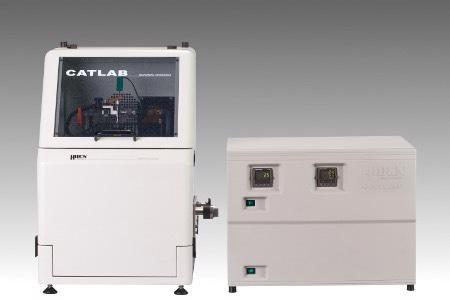Catalysis is the process of increasing the speed or otherwise changing a chemical reaction with the aid of a catalyst. This can only be done with chemicals that will already react together and is used in research and industry to accelerate the reaction. The cause of this phenomenon is that catalysts require less activation energy, or the minimum energy to initiate a chemical reaction.
This article will talk about the basic principle of catalysis and the different types.
Catalysis Working Principle
In the presence of a catalyst the chemical placed with it requires less free energy to reach the transition state for that reaction. Depending on the specific requirements of the reaction, the catalyst can alter the reaction environment.
This can take place in the form of an increase in heat, the formation of specific intermediates that aren’t formed naturally, binding of reagents to polarize the bonds, or causing dissociation of reagents to their reactive forms
Types of Catalysts
There are two main types of catalysts used for catalysis; heterogeneous or homogeneous. A heterogeneous catalyst acts in a different phase to its reactants, whereas a homogeneous catalyst functions in the same phase as its reactants.
Most heterogeneous catalysts are solid that act within gaseous or liquid reactants. It has active sites on its surface onto which the reactants are adsorbed and then interact with the catalyst. This interaction improves the reactivity of the molecules.
Specific to fuel cell engineering, an electrocatalyst is a type of heterogeneous catalyst that use metal containing species to enhance the half reactions, and thus improve the working conditions, in the fuel cell.
Homogeneous catalyst function in essentially the same way as heterogeneous catalysts, the major difference is they are in the same phase as the reactant.
Although transition metals are most widely used as catalysts, there are some small organic molecules that exhibit catalytic properties. This is known as organcatalysis and uses homogeneous catalysis principles.
Catalysis at Hiden Analytical

Hiden Analytical has over 35 years of expertise in the design, development, and manufacture of mass spectrometers for specialist process monitoring and advanced research applications.
With their wide range of products, they can meet the needs in any catalysis application. This includes the CATLAB-PCS which provides fully automated and accurate investigations of active surface chemistry, the ability to optimize catalytic activity, and rapid dynamic screening.
For electrochemistry, differential electrochemistry mass spectrometry (DEMS) is an ideal technique for analyzing the activity of electrocatalysts. The Hiden HPR-40 DEMS system is designed specifically for this purpose and includes DEMS Cells developed in collaboration with the Lawrence Berkeley National Laboratory, California, USA.
If you would like any more information about the products available from Hiden Analytical to investigate and analyze catalysis, please don’t hesitate to contact them.

This information has been sourced, reviewed and adapted from materials provided by Hiden Analytical.
For more information on this source, please visit Hiden Analytical.